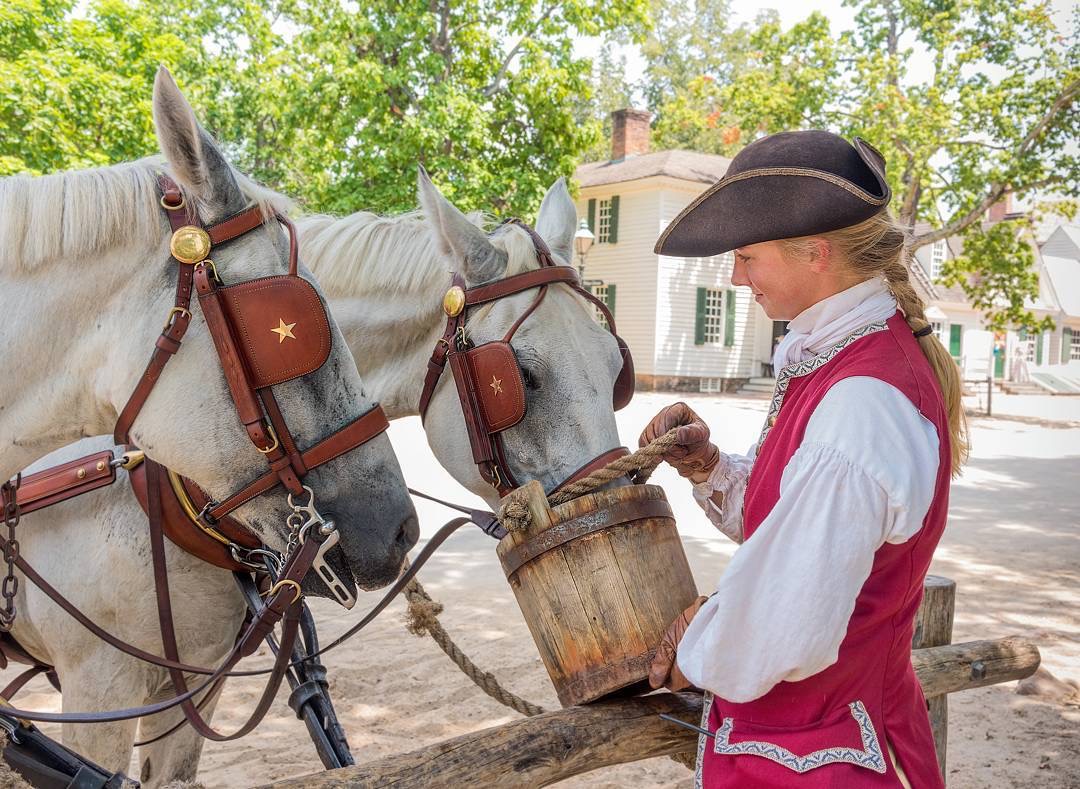Editor’s Note: Updated June 2021
Animal Safety and High Temperatures
It’s a hot week here in Williamsburg, Virginia. Naturally, that raises questions about the safety of our animals. You can rest assured that the well-being of our Rare Breeds is a top priority.
HYDRATION
Providing our animals with water, of course, is the most basic protection against the heat. The untrained eye may wonder about water access in our pastures. In reality, this is one area where we use 21st-century technology. Our pastures feature automatic water bowls that continuously replenish, so every animal can drink their fill.
Guests often miss the large watering troughs and automatic waterers in each pasture, because they are purposely camouflaged to maintain the 18th-century authenticity of the colonial capital. But we can assure you our animals know where these plentiful water sources are. And if you see an empty black pan or brown, do not fear! That just means lunch time is over. These are feed pans, not empty water sources, and they are supplemental meals to the plentiful grass grazing available.
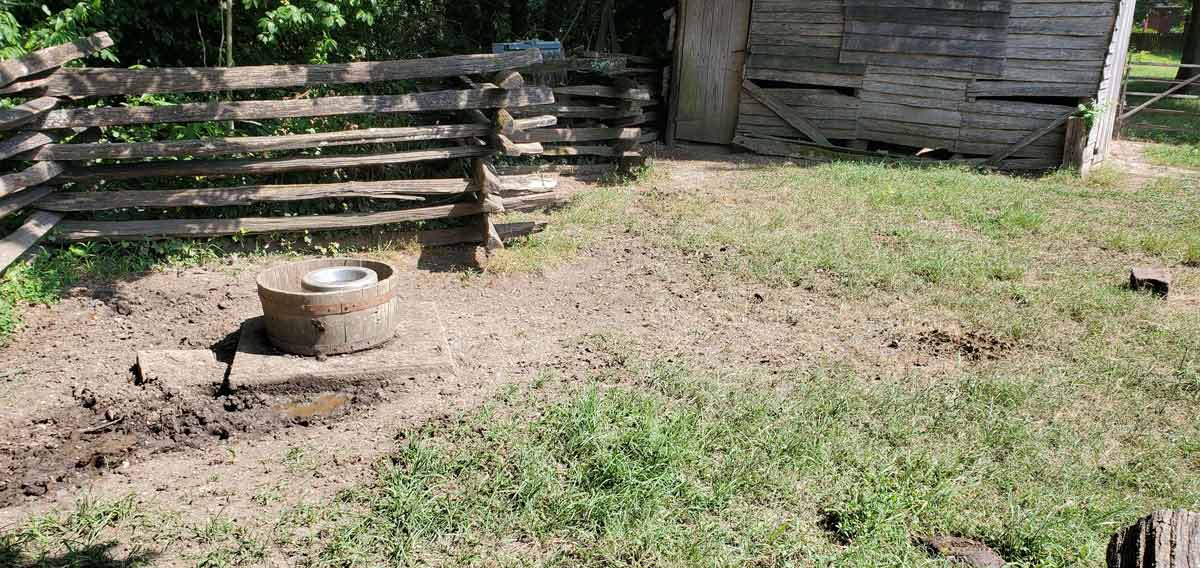
HEAT WATCH
Besides plenty of water, breaks, and shade, Coach & Livestock utilizes a heat index policy for working animals. The heat index combines the temperature with the relative humidity to check how hot it feels. Our policy includes a heat index cutoff point for each species.
For example, cattle — like dogs — cannot sweat, so they are removed from work when the heat index reaches 95°.
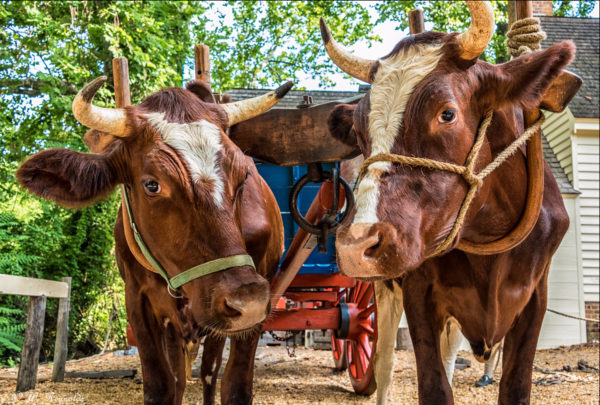
Horses can sweat, making them more equipped for hot temperatures. Still, safeguards are in place. The working horses start their day with a shower to get clean and ready for the day. They are washed again at the end of the day, and midday if needed as well. They're also fed grain topped with electrolyte powder. The horses enjoy the taste (the powder comes in flavors like apple and mint), but more importantly, it helps replenish salt lost through sweat. We also have techniques for cooling them down, such as rubbing them down with rubbing alcohol and placing them under a fan.
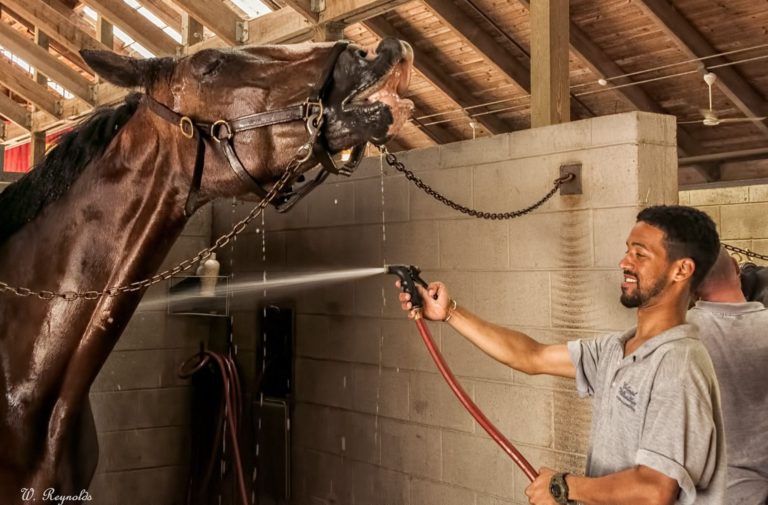
So what happens when the temperature rises? It depends on the heat index. When the heat index reaches 105°, all carriage rides are suspended. The same threshold applies to interpreters riding horses through the Historic Area. In addition to this heat index policy, horses temperatures are monitored every morning, midday, and in the evening.
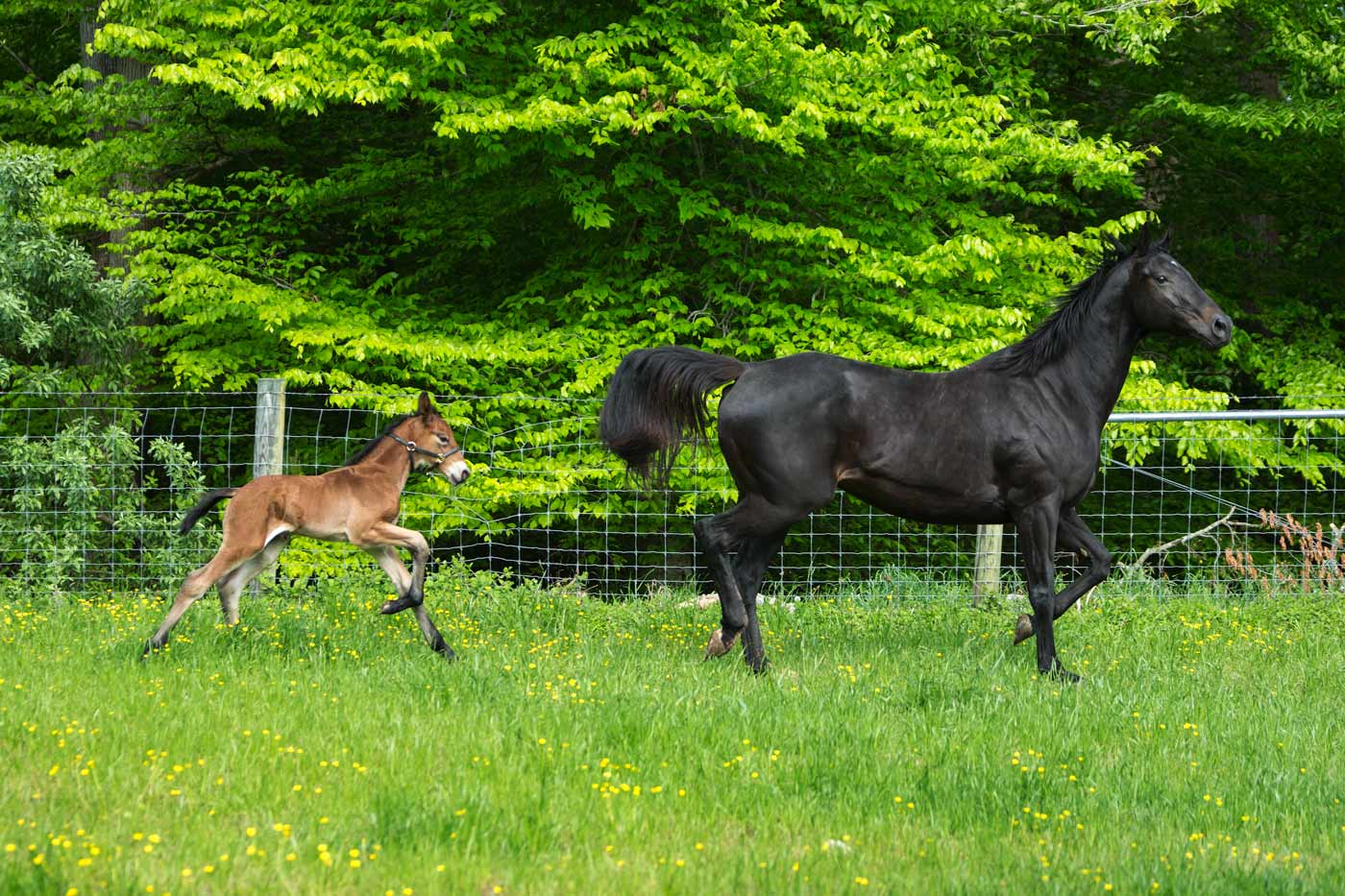
As with all of our animals, we ensure that Leicester Longwool sheep have plenty of shade and water.
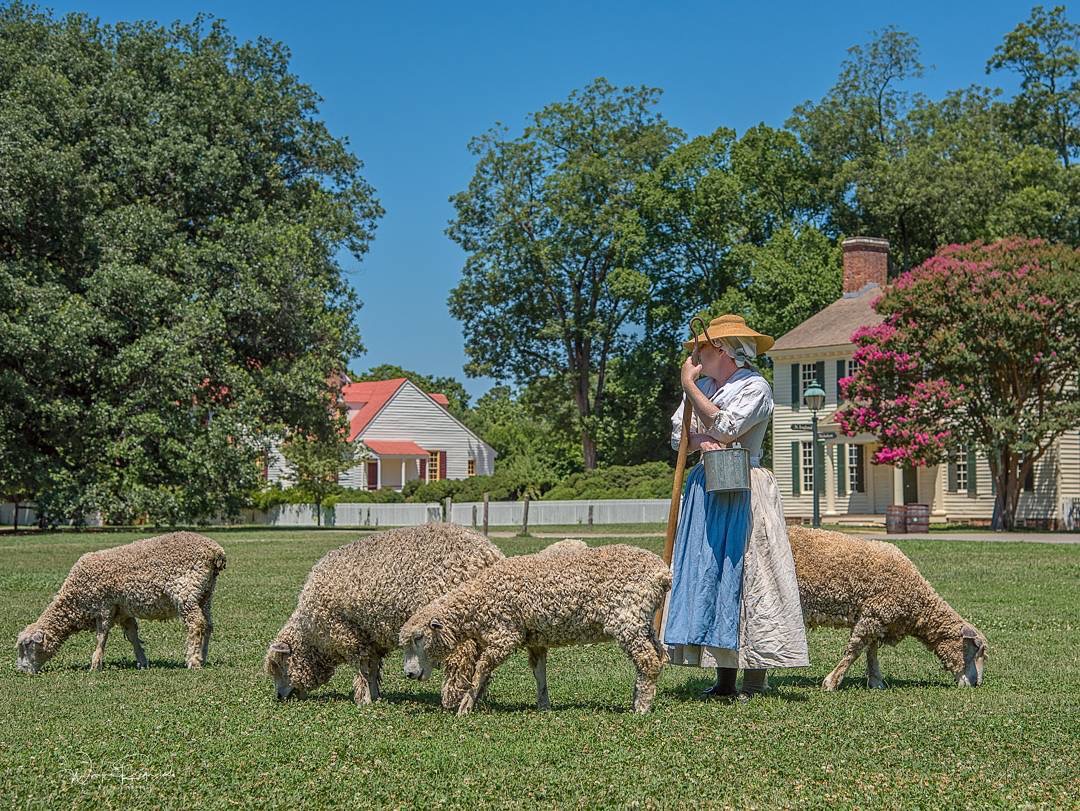
When the animals are not working, they are either in a pasture with shade trees, or in the stables where large ceiling fans run constantly to provide air circulation.
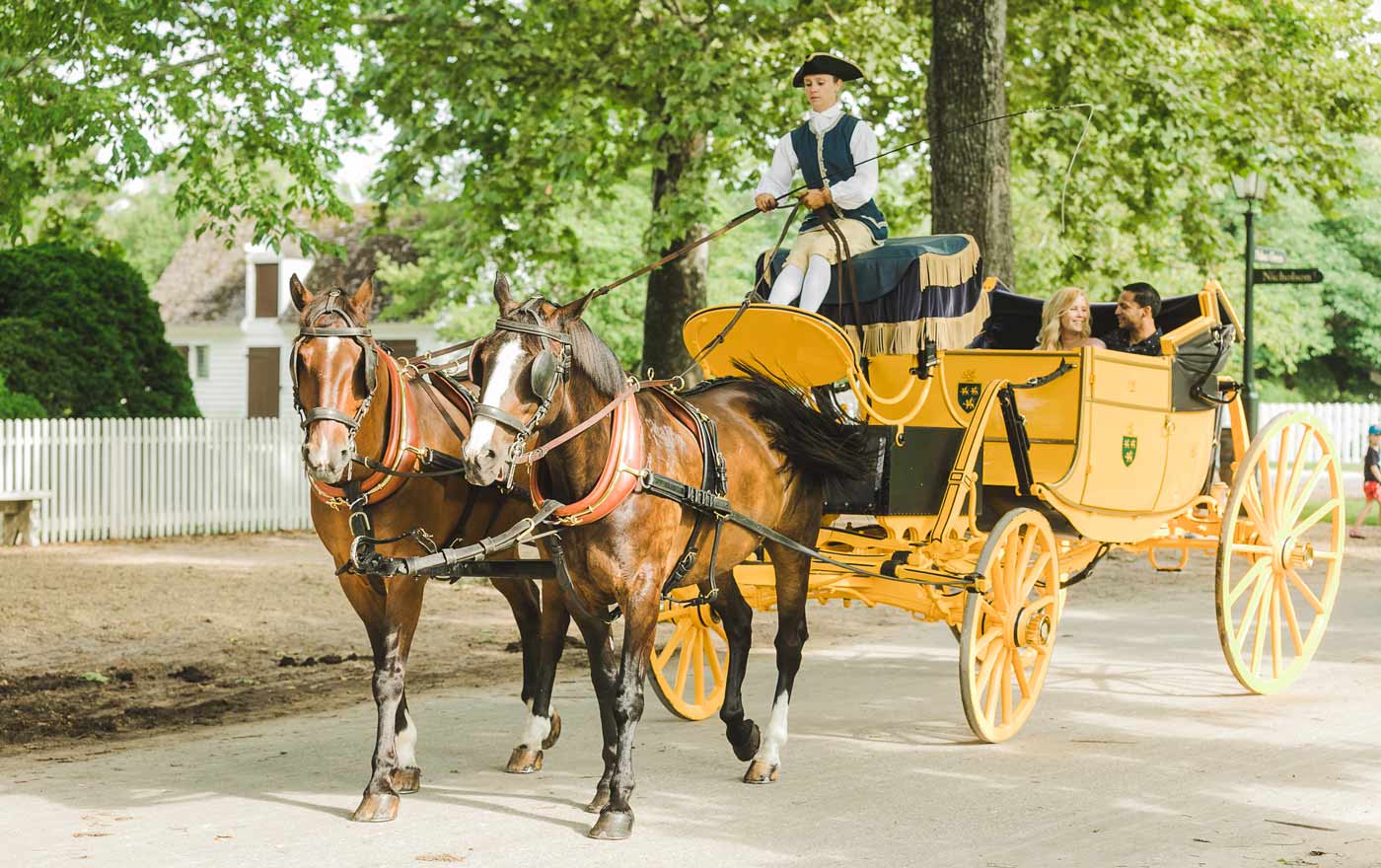
The Coach and Livestock team is passionate about ensuring the happiness and health of all Colonial Williamsburg animals, which is why these measures are in place. We apologize in advance for any inconvenience heat advisories cause your carriage ride plans, but we’re sure you can understand that everyone’s safety is the top priority.
Plan a visit to see our oxen, horses, sheep, and fowl in pastures throughout the Historic Area with our Pastures Map and learn more about our Rare Animal Breeds here. Please, for the safety and health of our animals, DO NOT feed the animals.
SUPPORT COACH & LIVESTOCK
Our Rare Breeds program plays an integral role in bringing history to life. Support our mission and Give Today.
Learn More
Related Events
-
Carriage Ride
Enjoy a leisurely ride through the Historic Area by horse-drawn carriage. Surround yourself with the sights and sounds of our unique city.
Open to the Public
Event Ticket
-
Tour: Stables Behind-The-Scenes
Get a behind-the-scenes look at our modern stables and learn more about our carriages.
CW Admission
Event Ticket
-
Presentation: Colonial Williamsburg's Rare Breeds
Learn about the rare breeds of livestock that live at Colonial Williamsburg.
CW Admission
